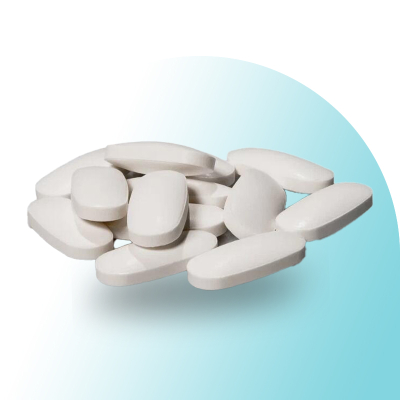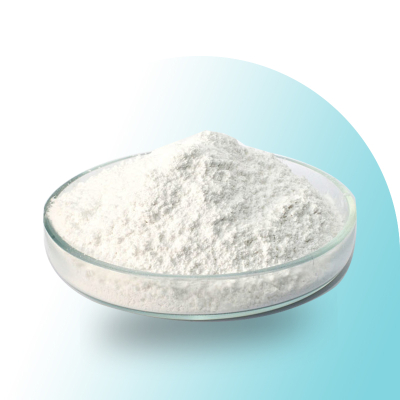A Guide to Lactose Suppliers: Understanding and Managing Lactose Intolerance
When it comes to milk sugar, many of us take it for granted. However, digesting lactose can be a problem for some people. In this article we will talk about lactose intolerance, how it affects the digestive system and how our body breaks down lactose. Whether you're looking forlactose supplieror want to learn more about dairy allergies, you've come to the right place. Let's understand how lactose affects our health and how suppliers offer solutions.
We are a lactose manufacturer from China. Contact us to receive a quote.
What is lactose?
Lactose, also known as milk sugar, is a type of sugar found in dairy products. It consists of two simple sugars: glucose and galactose. The body uses the enzyme lactase to break down lactose, allowing it to be absorbed in the small intestine. If there is not enough lactase enzyme available, undigested lactose ends up in the colon, where it can cause discomfort.
Lactose and the digestive system
The digestive system plays a key role in processing lactose. When dairy products enter the small intestine, lactase breaks down lactose into glucose and galactose. However, if the body does not produce enough lactase, undigested lactose can cause symptoms such as diarrhea and gas.
What happens when you can't digest lactose?
For people with lactase deficiency, digesting lactose becomes difficult. Lactase is an enzyme that breaks down lactose into simpler sugars. Without enough lactase, lactose cannot be digested and remains in the digestive tract. This can cause bloating, pain and discomfort, especially after eating dairy products such as ice cream or cheese.
Lactose intolerance and milk allergy
It is important to distinguish between lactose intolerance and milk allergy. Lactose intolerance involves difficulty digesting lactose, while milk allergy is a reaction of the immune system to proteins in milk. While lactose intolerance causes digestive problems such as gas and diarrhea, a milk allergy can lead to more serious symptoms such as swelling and difficulty breathing.
Common symptoms of lactose intolerance
Lactose intolerance affects millions of people around the world. Some of the most common symptoms include:
Diarrhea and gas after consuming dairy products
Bloating and abdominal pain
Nausea or vomiting in severe cases
Why do some people become lactose intolerant?
Lactose intolerance occurs when the body cannot produce enough lactase to break down lactose. This condition can develop over time, especially in adults, as lactase production decreases with age. Genetics also play a role, and some populations are more prone to lactase deficiency.
Can a person continue to produce lactase after childhood?
For most people, lactase production decreases with age. However, some people continue to produce lactase into adulthood, allowing them to digest lactose without problems. Lactase production varies among individuals and is influenced by genetics, diet, and overall health.
Lactose-free products: a solution to the problem
For people who have difficulty digesting lactose, lactose-free products are a great solution. These products contain added lactase, which breaks down lactose before it enters the digestive system. Popular lactose-free products include milk, cheese and ice cream.
Managing lactose intolerance
If you are lactose intolerant, there are several ways to manage your condition:
1.Choose lactose-free products: Many manufacturers now offer lactose-free dairy products. Look for products labeled lactose-free at the store.
2.Take lactase supplements: Lactase supplements are available over the counter and can help you digest lactose more easily.
3.Limit your intake of dairy products: Some people with lactose intolerance can digest small portions of dairy products. Experiment with different foods and portions to find out what works for you.
4.Choose dairy substitutes: If dairy is causing you problems, try plant-based alternatives such as almond milk, soy milk or coconut milk.
The role of lactose suppliers
Lactose suppliers play an important role in providing high-quality lactose to industries ranging from food manufacturing to pharmaceuticals. These suppliers often offer lactose in various forms: powder, granules and liquid to suit different product needs.
If you are a manufacturer or supplier looking for a lactose supplier, it is important to find a reliable source that will ensure consistent quality. Whether it's making ice cream, nutritional supplements or baby food, the right lactose supplier will help you ensure your product meets high standards.
How is lactose used in the food industry?
Lactose is not only used by people with lactose intolerance - it is also used as a food ingredient in a variety of products, such as:
·Ice cream: Lactose adds sweetness and texture to ice cream.
·Bakery: Lactose enhances flavor and moisture in baked goods.
·Baby formula: Lactose is often used in infant formulas as the main source of carbohydrates.
Beneficial properties of lactose
Although lactose intolerance is common, lactose itself provides some health benefits if it is digested properly. Here are some benefits:
·Energy source: Glucose, one of the simple sugars lactose, is a source of energy for the body.
·Bone Health Support: Dairy products containing lactose are rich in calcium, which supports bone health.
·Strengthening immune function: Lactose may aid in the absorption of nutrients that support the immune system.
Lactose-free products for people with lactose intolerance
For those who cannot digest lactose properly, there are many lactose-free alternatives:
·Lactose-free milk: This milk has lactase added to it, which breaks down the lactose before you drink it.
·Plant milk: Almond milk, soy milk and oat milk are great alternatives.
·Lactose-free yoghurt and cheese: Some yogurt and cheese brands offer lactose-free products.
Importance of lactose suppliers for the food industry
Lactose suppliers provide manufacturers with quality lactose for the production of various food products. Whether it's lactose for sweetening or for use in pharmaceutical applications, reliable suppliers play an important role in ensuring product consistency and meeting consumer demand.
How to choose a lactose supplier
When choosinglactose supplierThe following factors should be taken into account:
·Quality control: Ensure that the supplier adheres to strict quality control standards.
·Supply Chain Reliability: Select a supplier with a proven track record of on-time delivery.
·Variety of productsA: A good supplier will offer different forms of lactose to suit different production needs.
·Price: Compare prices to find a supplier that offers competitive rates without sacrificing quality.
Conclusion: Managing lactose intolerance and choosing the right supplier
Lactose intolerance affects millions of people, but that doesn't mean you have to give up delicious dairy products. With the right lactose-free alternatives and a good understanding of how lactose works in the body, managing lactose intolerance is entirely possible. And for manufacturers, choosing the right lactose supplier will ensure that your products are tasty and suitable for people with lactose sensitivity.



